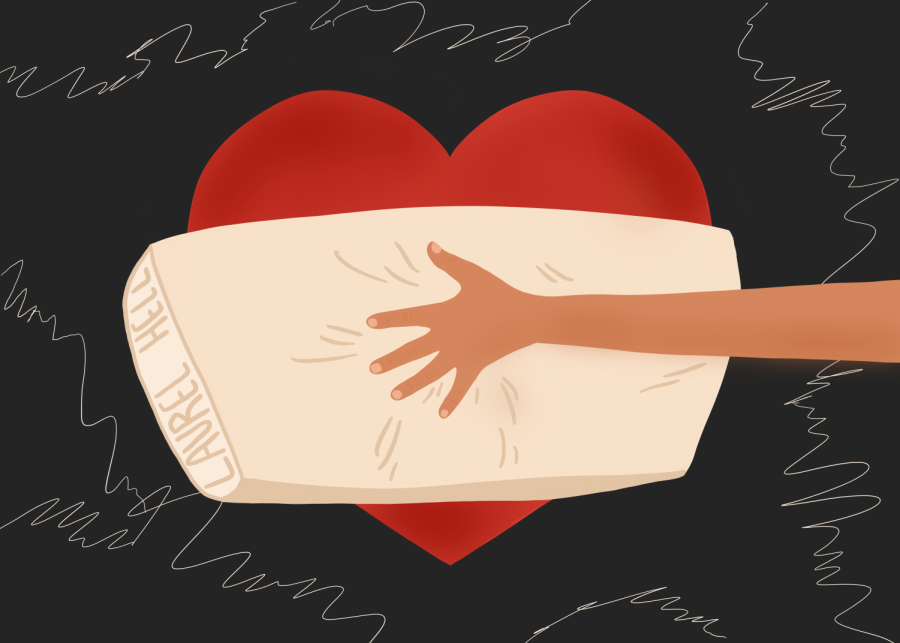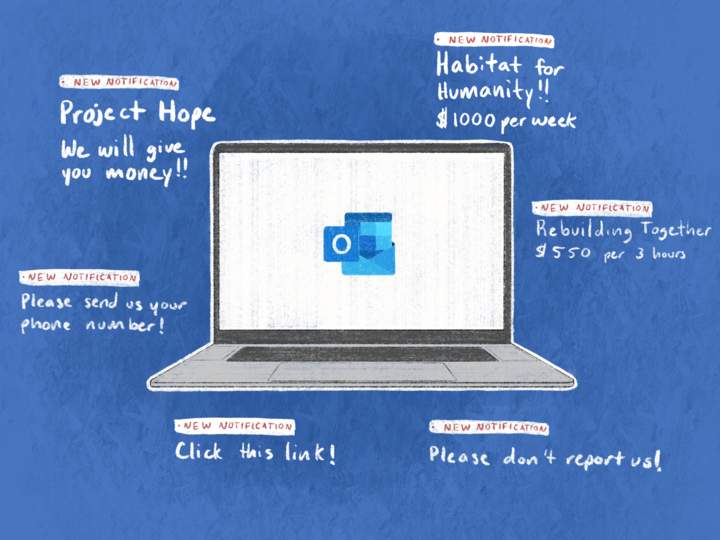Review: Mitski’s ‘Laurel Hell’ represents bittersweet exit from music
“Laurel Hell” is an album representing Mitski’s departure from the music industry. The album features songs that depart from the trends of her discography.
February 18, 2022
“I guess this is the end/ I’ll have to learn/ To be somebody else,” Mitski Miyawaki sings mournfully in “I Guess,” the penultimate track on her latest album “Laurel Hell.” The album, which was released Feb. 4, is speculated by many fans to be the final gift of Mitski’s career.
Mitski, a Japanese American singer-songwriter who has been a darling of the indie pop world since her release of the album “Bury Me at Makeout Creek” in 2014, last announced her exit from the music industry in 2019 at the final show of her “Be The Cowboy” album tour. The star tweeted that a life of non-stop touring was taking a heavy toll on her mental health and that she needed an indefinite break, before deleting the tweet along with the rest of her social media.
Mitski’s brief recess from performing was quickly cut short when she realized she was still contractually obligated to release another album with her label, “Dead Oceans.” Two weeks after she announced her hiatus, rather than enjoying her newfound freedom, Mitski was writing “Working for the Knife,” a world-weary song lamenting the pressure artists feel to continually churn out content. Mitski released the track Oct. 5, 2021, as the lead single for “Laurel Hell.”
“Laurel Hell” explores Mitski’s conflicted relationship with stardom. She sings about feeling trapped in fame, about wanting to leave the spotlight but fearing aimlessness.
“I used to think I’d be done by 20/ Now at 29, the road ahead appears the same/ Though maybe at 30 I’ll see a way to change,” she sings in “Working for the Knife.” In an interview with Rolling Stone, Mitski revealed that although she loves making music, she worries that it’s the only thing she is capable of doing. This insecurity, rather than the “Dead Oceans” contract, was the reason she decided to devote three years to “Laurel Hell.”
Darkness is a recurring motif in “Laurel Hell.” “Valentine, Texas,” the opening track, begins with the line, “Let’s step carefully into the dark,” setting the tone for the rest of the album. She brings up the nebulous “dark” again in “Everyone,” where she admits, “And I left the door open to the dark/ I said, ‘Come in, come in, whatever you are.’”
The “dark” could be a symbol of Mitski’s struggles with depression while on tour. According to Mitski’s deleted tweets, the pressures of her chaotic tour schedule caused her to neglect her mental health. In order to combat the negative feelings associated with the nomadic on-tour lifestyle, she repressed her emotions. That didn’t work either, because as an artist she needed to connect with her audience by genuinely putting her heart and soul into each performance.
“In order for me to survive in the music industry as it exists, I had to stuff a pillow over my heart and tell it to stop screaming, and be like, ‘Shut up, shut up, take it.’ After a few years of doing that every single day, my heart really did start to go numb and go silent. And the problem with that is that I actually need my heart, my feelings, in order to write music,” Mitski said to Rolling Stone.
The album also expresses Mitski’s dissatisfaction with her image in the eyes of fans. In “Stay Soft,” Mitski describes herself as a “sex god,” alluding to the unrealistic pedestal many fans put her on. She goes on to sing, “Open up your heart/ Like the gates of hell,” referencing the raw emotions she dredges up in order to deliver the poignant performances that make her stand out. In order to maintain the artistry she is known for, she must therefore “stay soft.”
The music video for “Love Me More” continues to illustrate Mitski’s concern that her public persona is not under her control. The imagery in the video includes a scene in which Mitski frantically spins around a white room attempting to match the poses of silhouettes of herself painted on the walls. It also features a disconcerting Mitski puppet, a representation of a perception of herself she feels disconnected from.
“The ‘sad girl’ thing was reductive and tired like five, 10 years ago and still is today. … Let’s retire the sad girl schtick. … Sad girl is over,” Mitski said in a video with Crack Magazine in January. In the video, the star responds to fan tweets, some of which unintentionally dilute her music down to a repertoire of depressing songs. Mitski has too long been categorized as one of the major “indie sad girls” for an artist with so much creative depth.
“Laurel Hell” is named for the rhododendron thickets of southern Appalachia. Campers who have come into contact with these thickets, which are referred to colloquially as laurel hells, describe the blooms as beautiful but the branches as thorny and extremely difficult to maneuver around. Stardom is Mitski’s laurel hell: she loves writing and performing music, but the sacrifices that come with giving herself completely to her art have the potential to destroy her.
“Laurel Hell” is a departure from Mitski’s traditional work. The album contains some of her trademark slow, evocative pieces like “Heat Lightning,” a song vividly describing a night of insomnia and “Valentine, Texas,” “Laurel Hell”’s emotive opener. However, she also emulates an ‘80s sound with produced, synth-heavy tracks like “The Only Heartbreaker,” a catchy tune where the narrator fears she is the only one putting effort into her relationship, and “Should’ve Been Me,” which samples the Hall & Oates 1982 hit “Maneater.”
Critics have judged the album for its lack of cohesion. Mitski’s innovative discography has set a high bar, and “Laurel Hell” certainly doesn’t have as many soul-stirring classics as its predecessors. However, knowing the circumstances in which the album was produced makes the shift in Mitski’s style unsurprising.
Mitski doesn’t exist to make music that affirms the arbitrary perceptions of her fans. She makes music because she loves it, and with “Laurel Hell” she supports her promise to only make music as long as it brings her happiness. Whether or not her career continues after “Laurel Hell” depends on whether she can maintain this promise.
“From here, I can tell you/ Thank you,” Mitski croons in the final line of “I Guess.”







